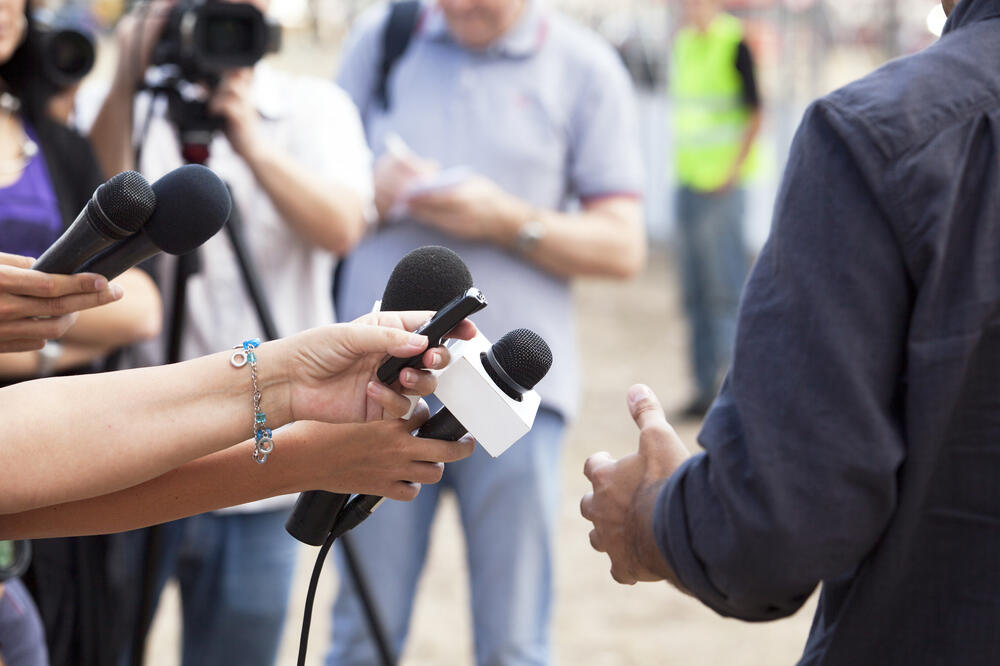The subject of the poisoning of the Russian double agent Sergei Skripal and his daughter Yulia has displaced an important story from the front pages of British newspapers. In early March, former comedian John Ford admitted that for 15 years, from 1995 to 2010, he worked for Rupert Murdoch's Sunday Times newspaper and that his task was to illegally access information about the private lives of dozens of famous people, including Gordon Brown, who was then the prime minister.
Ford told what methods he used: "I hacked into their landline and mobile phones, bank accounts, searched their trash." Some of the most famous names in British journalism may be tarnished by those, and many other, revelations of wrongdoing and wrongdoing.
The sources of that story can be found in the time when the free press appeared, in 1695, when the licensing of the means of public information was abolished. In order to fulfill the task of controlling the government, which until then was considered its basic purpose, the free press needed information. We expect the free media to investigate the activities of the authorities and publish their abuses. In this context, we cannot skip the Watergate publications that led to the downfall of US President Richard Nixon in 1974.
To fulfill that role, the press does not need scandals. The existence of a free media is in itself a limitation for governments. And not the only one. The principle of the rule of law, enforced by an independent judicial system, and also competitive elections, at regular intervals, are equally important. All these restrictions together form a tripod, so if you remove one leg, the others won't stand either.
We see the media as our protector against an overly powerful state, regardless of the fact that politicians, when under pressure from them, usually behave cowardly. The reason for this is that we do not have a good theory of private power.
Liberal arguments are both simple and very simplistic: the state is dangerous because it is monopolistic. It controls the instruments of coercion and therefore its dark dealings must be exposed through fearless investigative journalism. And newspapers, on the contrary, are not monopolists. They have no instruments of coercion and therefore we do not need protection from the press for abuse of power.
However, although a pure media monopoly does not exist, an oligopoly dominates in most countries of the world. According to economists, social good is created thanks to the invisible hand of the market, but in the market of information this hand is quite visible because it is quite concentrated. Eight companies own 12 national newspapers in Britain, with four owners having more than 80% of realized circulation. In 2013, two men - Murdoch and Lord Rothermer - owned 52% of news outlets in Britain (print and online). If the press wasn't so successful in presenting its power as invisible, we would long ago have stopped relying solely on self-regulation to maintain fairness in the media.
Attempts to bind the British press to the standards of "decent" journalism have been undertaken - and failed - more than once. Since 1945, six commissions have been formed in Britain to deal with the issue. Everything happened after some repeated severe abuse, and it was recommended that "steps be taken" to protect the inviolability of private life. And in each of those cases, the government provided support. This is explained in two ways. First of all, no politician wants to turn the media against him. Tony Blair's attempts to ingratiate himself with Murdoch, owner of the Sun, Times and Sunday Times magazines, became legendary, and so did the reward for doing so. Murdoch's press supported Labor in the 1997, 2001 and 2005 elections, when Blair won. The second reason is more ominous: newspapers have "compromising material" about politicians and are ready to use it to protect their interests.
In 1989, under pressure from the parliament, the government appointed David Kelcutt to head the committee for "creating measures (legislative or other) necessary to increase the protection of private life from the media, as well as to provide citizens with means of protection against media interference in their lives." The key recommendation of Calcutta was the following: replace the defunct "Media Affairs Council" with the "Media Complaints Commission" (PCC), which was eventually formed.
Yet in 1993, Kelkat called the PCC "a body created, funded and subservient to the media industry, which also operates under a Constitution created for and overly favorable to that industry".
Kelkat recommended that it be replaced by a press appeals court. The government did not agree with that proposal.
In March 2011, a joint committee of the parliament announced that "the existing system of self-regulation is not usable and needs to be repaired". As the PCC "proved to be unwilling to deal with systemic and illegal cases of invasion of privacy", the commission proposed that a new, reformed regulator be formed.
That same year, following the wiretapping scandal that led to the closure of Murdoch's News of the World, David Cameron, then prime minister, appointed Court of Appeal member Brian Leveson to head a commission to analyze “the culture, practice and ethics of the press; her relationship with the police; shortcomings of the existing regulation system; contacts and conversations between national newspapers and politicians; the reasons why previous signals about illegal press behavior were not heeded; problems of cross-ownership of different media". Leveson vigorously pursued his task (making recommendations for new, better regulation of the press), starting with one simple question: and who guards the guards?
In the first part of the report, published in 2012, it was recommended to form a branch regulator whose independence, both from newspapers and from the government, would be equally guaranteed by the Press Recognition Panel, established by the Royal Charter. And in order to prevent the "state control", which is mentioned in the report, the owners of the newspapers formed an "Independent Organization for the Standardization of the Press", subordinated only to itself. Acting as before, the government then went back on its feet, and disagreed with Leveson's opinion on the need for further analysis of “the extent of illegal or inappropriate behavior by newspapers, including corrupt payments to the police”. Leveson doubted that IPSO would differ from its predecessor - the PCC - so much that there might be some "real difference in the behaviour" of the press as a whole.
Some British news outlets are uniquely corrupt, but striking the right balance between the public's need to know and the right of private individuals to the privacy of their private lives is a more serious problem that must be continually addressed in the face of changing technology and working methods. The media is obliged to protect us from abuse of state power; and we need the state to protect us from abuse of power by the media.
The author is Emeritus Professor of Political Economy at the University of Warwick and a member of the British House of Lords
Copyright: Project Syndicate, 2018.
Bonus video:





